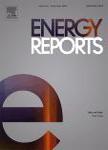版权所有:内蒙古大学图书馆 技术提供:维普资讯• 智图
内蒙古自治区呼和浩特市赛罕区大学西街235号 邮编: 010021

作者机构:State Grid Shandong Elect Econ & Technol Res Inst Jinan 250021 Peoples R China State Grid Shandong Elect Power Co Jinan 250021 Peoples R China Guangxi Univ Sch Elect Engn Nanning 530004 Peoples R China
出 版 物:《ENERGY REPORTS》 (Energy Rep.)
年 卷 期:2022年第8卷
页 面:668-677页
核心收录:
主 题:Economic dispatch Perfect dispatch Machine learning Gate recurrent unit neural network
摘 要:Perfect dispatch refers to finding the after-the-fact optimal allocation of output power among generating units based on actual loads. This paper proposes a new idea to solve the economic dispatch problem that regards it as a learning problem, not an optimal problem. The adaptive Gate Recurrent Unit (GRU) neural network is applied to construct the perfect dispatch learning model, which makes the perfect dispatch from an offline manual analysis method to an automatic online learning method. The hierarchical clustering analysis is performed to determine historical similar days for forecast day. Then the historical days that have the same load characteristic with the forecast day form the training set for the GRU learning model. The matrix correlation analysis is performed to select critical historical instants for each dispatch instant. According to matrix correlation analysis results, the number of the memory blocks in each GRU learning model is determined. The structure of GRU learning models is adaptive for different dispatch instants. The IEEE 39-bus test system is used to verify the feasibility and accuracy of the proposed perfect dispatch learning model. Study results indicate that the generation dispatch schedule obtained by the proposed GRU learning model is closer to the perfect dispatch schedule than the generation dispatch schedule obtained by solving the non-linear optimization problem. (c) 2022 The Author(s). Published by Elsevier Ltd. This is an open access article under the CC BY-NC-ND license (http://***/licenses/by-nc-nd/4.0/). Peer-review under responsibility of the scientific committee of the 2021 The 2nd International Conference on Power Engineering, ICPE, 2021.